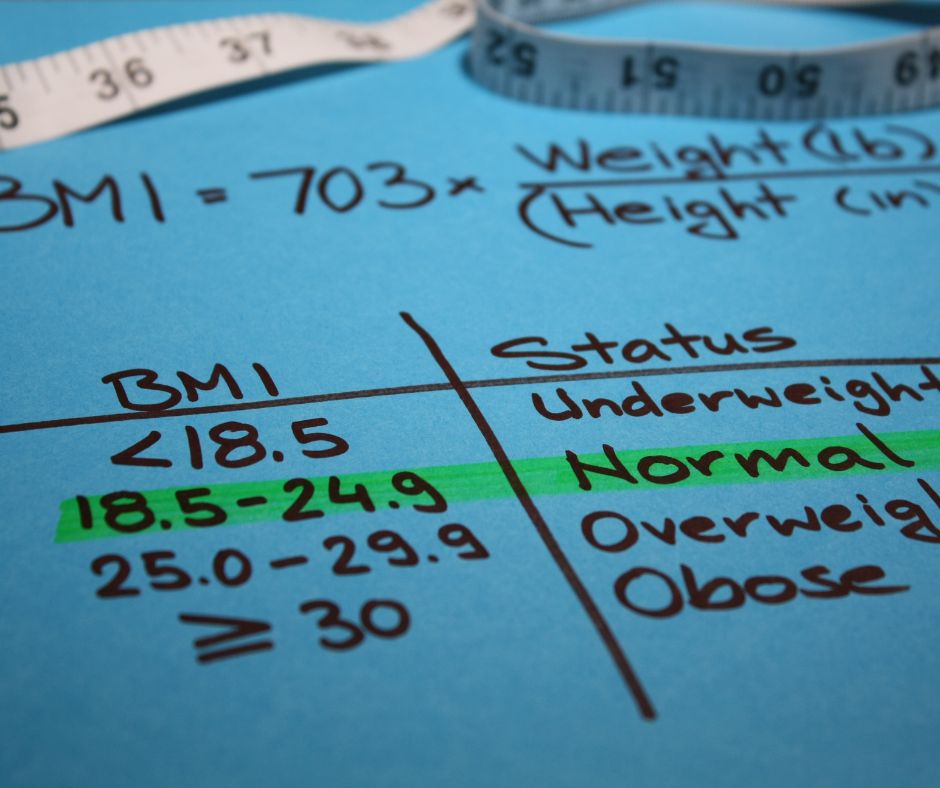In our previous article, we pointed out that plans cannot be made as no one knows what life brings them! And thinking about having children is no exception to this rule. In our new article we investigate the connection between prenatal vitamins and weight control with fertility.
Before visiting a doctor, you may need to search online about the things that need to be done to conceive faster. Among those things, you will notice the necessary intake of prenatal vitamins. Which vitamins you have to take, in what amount, for how long, etc. Maybe, these are some of your questions and we got you covered!
First of all, you probably know that you can’t take all the nutrients you need just from food, especially those you need while trying to conceive. That means you have to take food supplements, vitamins! But not just any vitamins, prenatal vitamins. They contain ingredients that support things like development of the baby’s brain and spinal cord, and providing enough oxygen to the blood cells so everything can run smoothly.

A common question among women is how many prenatal vitamins should they take in one day. According to ACOG, the American College of Obstetricians and Gynecologists, the most important nutrients you need to take before and during pregnancy are the above
600 micrograms (mcg) of folate (aka folic acid or methyl folate) to support fetal neural tube development — 400 of which should come from prenatal vitamins.
27 milligrams (mg) of iron to form red blood cells and hemoglobin — the protein in your blood that transports oxygen from your lungs throughout the body.
450 mg of choline to support fetal neurodevelopment.
85 mg of vitamin C to promote the growth of all connective tissue (skin, joints, etc.) and a healthy immune system.
770 mcg of vitamin A to support fetal eye development and good vision, as well as a healthy immune system.
1.9 mg of vitamin B6 to boost your energy while you’re pregnant.
2.6 mcg of vitamin B12 to help keep the central nervous system on track.
220 mcg of iodine to help with developing a healthy fetal brain and maintaining thyroid health.
1,000 mg of calcium to strengthen fetal teeth and bones.
600 international units (IU) of vitamin D3 to promote bone health and improve immune function for you and the fetus.
Omega-3 fatty acids DHA and EPA (ACOG doesn’t recommend an exact amount) to help with retina and fetal brain development.
You will definitely need to consult your doctor on how to receive all the above nutrients, and not just take a random multivitamin from the store. As prenatal vitamins have minimal government oversight – meaning there isn’t a ton of regulation around what over-the-counter supplements get the “prenatal” label, you are having tons of options on which to buy. But if you choose a prenatal vitamin correctly and it has a good assortment of the nutrients recommended for pregnancy, it will luckily help you bridge the gap between low intake from food and higher nutrient demands before and during pregnancy and lactation.
The timeline of when to start taking the vitamins can be also tricky. Women mostly start as soon as they are found to be pregnant, but doctors recommend starting at least one month before. Because of the uncertainty of things, you can’t exactly predict when you’ll get pregnant so you can start the vitamins long before in order to prepare your body. So you may now ask: If I take the vitamins regularly, would I increase my chances for pregnancy?
Unfortunately, the answer is no. To date, there have been no published, large-scale studies linking the use of prenatal vitamins or specific micronutrients with pregnancy rates or time to pregnancy – meaning there’s no evidence that taking prenatal impacts your chances of conception. You just help your body deal better with a possible conception. There are other things that can improve chances of conception, such as tracking your cycle, timing intercourse during your ovulation time, getting off birth control, and everything else you and your doctor will see fit to do.
There is a common disbelief that food supplements and especially prenatal vitamins can make women gain weight. Scientifically though this is not something true. Prenatal vitamins do not directly cause weight gain, but there are some factors that may indirectly lead to weight gain during pregnancy, such as:
It is crucial to remember that weight gain is expected during a healthy pregnancy, and not caused because of the vitamins.
The American College of Obstetricians and Gynecologists (ACOG) recommends that pregnant women gain an appropriate amount of weight based on their pre-pregnancy BMI. The following guidelines can be used as a reference:

The answer here is more complicated than a yes or no. No one has the same body and metabolism and that is the reason why we can’t say for sure if you will have the same outcome on conceiving compared to your neighbor. People of all sizes can conceive and have healthy pregnancies, but doctors claim that there are specific BMIs can positively affect the outcome.
The most important thing doctors look for in a couple trying to conceive is the sudden changes in weight. Weight changes are a common feature of thyroid conditions – and weight gain in particular (as well as insulin resistance, which can affect fertility) is often associated with polycystic ovary syndrome (PCOS). The American Society for Reproductive Medicine (ASRM) states that women with low and high BMIs may have irregular menstrual cycles or cycles without ovulation. Irregular ovulation makes it more challenging to time sex or insemination around your most fertile days – and without any ovulation at all, no egg will be available for fertilization. In these situations, changes in nutrition and regular exercise will surely help. According to research published in the American Society for Reproductive Medicine in 2004 studied 2,112 pregnant women between the years of 2000 and 2001 and found the above:
So you can easily guess that conceiving is affected by all kinds of factors, not only by your actual weight. It is a combination of lifestyle factors also.
Another research that has been published in 2016, examined all US data (494,097 cycles) on in vitro fertilization (IVF) outcomes from 2008 to 2013 and found that people with BMIs in the “underweight” and “obese” categories had decreased rates of pregnancy and live birth per embryo transfer.
Also, the American College of Obstetricians and Gynecologists published a 2019 Committee Opinion stating that low BMI was associated with higher rates of having small-for-gestational-age and low-birth-weight infants – and high BMI was associated with higher rates of miscarriage, preterm delivery, gestational diabetes, gestational hypertension, cesarean-section (C-section), blood clots, birth defects, and even stillbirth.
All the above might sound frightening, but the one thing you have to keep in mind while reading this article is that your whole lifestyle can affect your fertility. No one -except from doctors- is in a position to tell you if you are capable of conceiving and what you have to do in order to maximize your possibilities. Trust them, they are here to help. In general, trying to control your weight, eating healthy, exercising regularly, avoiding smoking and drinking, and taking prenatal vitamins will surely make you healthier and stronger in order to deal with whatever happens to you.
And when you decide to start your fertility journey, MEDIPASS will be here to guide you every step of the way. Greece offers a wide range of fertility treatments and top-notch fertility doctors and clinics, so rest assured you will be in good hands.
Request your quote and let us guide you through your fertility journey 🙂

| Cookie | Duration | Description |
|---|---|---|
| AWSALBCORS | 7 days | This cookie is managed by Amazon Web Services and is used for load balancing. |
| cookielawinfo-checkbox-advertisement | 1 year | Set by the GDPR Cookie Consent plugin, this cookie is used to record the user consent for the cookies in the "Advertisement" category . |
| cookielawinfo-checkbox-analytics | 11 months | This cookie is set by GDPR Cookie Consent plugin. The cookie is used to store the user consent for the cookies in the category "Analytics". |
| cookielawinfo-checkbox-functional | 11 months | The cookie is set by GDPR cookie consent to record the user consent for the cookies in the category "Functional". |
| cookielawinfo-checkbox-necessary | 11 months | This cookie is set by GDPR Cookie Consent plugin. The cookies is used to store the user consent for the cookies in the category "Necessary". |
| cookielawinfo-checkbox-others | 11 months | This cookie is set by GDPR Cookie Consent plugin. The cookie is used to store the user consent for the cookies in the category "Other. |
| cookielawinfo-checkbox-performance | 11 months | This cookie is set by GDPR Cookie Consent plugin. The cookie is used to store the user consent for the cookies in the category "Performance". |
| CookieLawInfoConsent | 1 year | Records the default button state of the corresponding category & the status of CCPA. It works only in coordination with the primary cookie. |
| elementor | never | This cookie is used by the website's WordPress theme. It allows the website owner to implement or change the website's content in real-time. |
| PHPSESSID | session | This cookie is native to PHP applications. The cookie is used to store and identify a users' unique session ID for the purpose of managing user session on the website. The cookie is a session cookies and is deleted when all the browser windows are closed. |
| viewed_cookie_policy | 11 months | The cookie is set by the GDPR Cookie Consent plugin and is used to store whether or not user has consented to the use of cookies. It does not store any personal data. |
| Cookie | Duration | Description |
|---|---|---|
| _gr | 2 years | |
| _gr_flag | 2 years |
| Cookie | Duration | Description |
|---|---|---|
| __utma | 2 years | This cookie is set by Google Analytics and is used to distinguish users and sessions. The cookie is created when the JavaScript library executes and there are no existing __utma cookies. The cookie is updated every time data is sent to Google Analytics. |
| __utmb | 30 minutes | Google Analytics sets this cookie, to determine new sessions/visits. __utmb cookie is created when the JavaScript library executes and there are no existing __utma cookies. It is updated every time data is sent to Google Analytics. |
| __utmc | session | The cookie is set by Google Analytics and is deleted when the user closes the browser. It is used to enable interoperability with urchin.js, which is an older version of Google Analytics and is used in conjunction with the __utmb cookie to determine new sessions/visits. |
| __utmz | 6 months | Google Analytics sets this cookie to store the traffic source or campaign by which the visitor reached the site. |
| AWSALB | 7 days | AWSALB is an application load balancer cookie set by Amazon Web Services to map the session to the target. |
| Cookie | Duration | Description |
|---|---|---|
| _gcl_au | 3 months | Provided by Google Tag Manager to experiment advertisement efficiency of websites using their services. |
| Cookie | Duration | Description |
|---|---|---|
| __utmt_UA-117840525-1 | 10 minutes | No description |
| cf_7942_cta_64058 | 20 years | No description |
| cf_7942_cta_97721 | 20 years | No description |
| cf_7942_id | 20 years | No description |
| cf_7942_person_last_update | session | No description |
| fbf6cd3e6aa148eeacc8d236b0ddbf9946e751a377584af7ad826f374b94e930 | 1 year | No description |
We're Here To Help You
Fill in the form to receive more information about doctor and treatments